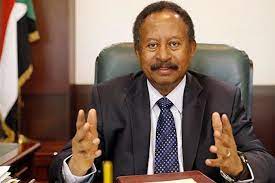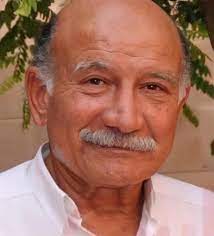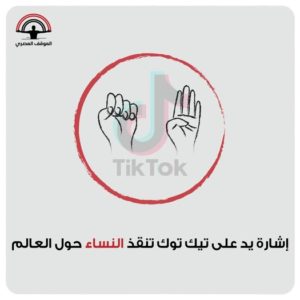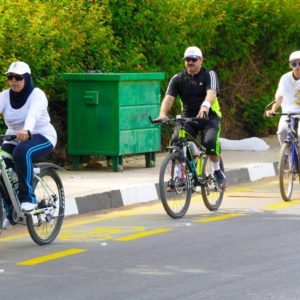Today in Sudan, the commander of the Sudanese army, Abdel Fattah Al-Burhan, signed a political agreement with the legitimate Prime Minister, Abdullah Hamdok; With the aim of ending the crisis that the country has been going through for about a month, after intense international pressure and continuous demonstrations calling for civilian rule.
– The Sudanese army reached an agreement with Prime Minister Abdalla Hamdok, after his release from house arrest, regarding the latter’s return to the presidency of the Sudanese government and the release of civilian leaders detained since the military coup last month.
The release of Hamdok and his recognition as a legitimate prime minister was the first real steps to break the coup in Sudan, and not to pass the will of the coup by force, and this happened after the steadfastness of nearly a month of the Sudanese people in the streets between peaceful demonstrations and civil disobedience, in light of cutting off communications and the Internet.
– The Transitional Sovereignty Council in Sudan published a picture showing a meeting at the Republican Palace between Hamdok, Army Commander Abdel-Fattah Al-Burhan, and Vice-President of the Council, Mohamed Hamdan Dagalo, known as Hemedti.
*****
Hamdok then held meetings with representatives of the army and they reached a new political agreement, stipulating a number of items in order to overcome the political crisis that Sudan is experiencing, and a pledge to work together to complete the path of democratic correction in a way that serves Sudan’s supreme interest. The following are the terms of the agreement:
1- Emphasizing that the constitutional document for the year 2019 is the main reference for completing the transitional period, taking into account the special situation in eastern Sudan and working to address it.
2 – The necessity of amending the constitutional document by consensus in order to achieve comprehensive political participation for all components of society, except for the dissolved National Congress Party.
3 – The transitional partnership between civilians and the military is the guarantor and means for the security and stability of Sudan.
4 – Forming a civilian government composed of independent national competencies.
5 – The Sovereignty Council supervises the implementation of the tasks of the transitional period mentioned in Article 8 of the Constitutional Document, without direct interference in the executive work.
5 – Ensuring the transfer of power on time to an elected civilian government.
6- Managing the transitional period according to a political agreement that defines the framework of partnership between the national political and civil forces, the military component, the civil administration, the resistance committees, the forces of the living revolution, the youth and women sector, and the men of Sufi orders.
7- Investigate the events that took place during the demonstrations, including injuries and deaths of civilians and military personnel, and bring the perpetrators to trial.
8 – Implementing the Juba Peace Agreement and completing the entitlements arising from it, and enlisting the non-signatories of the peace agreement.
9- Speeding up the completion of all institutions of transitional governance by forming the Legislative Council and judicial bodies from a constitutional court and appointing the chief justice and the attorney general, then successively forming other transitional government commissions and institutions and carrying out their tasks immediately according to specific timetables.
10 – Initiation of a broad and transparent dialogue between all political and societal forces and the forces of the revolution. The neighborhood establishes the establishment of the constitutional conference.
11 – Restructuring the committee to dismantle the June 30 regime (the regime of ousted President Omar al-Bashir), with a review of its performance in the previous period and providing it with qualified cadres in the necessary disciplines and expertise that would enable it to perform its work in a fair and impartial manner, with the activation of the Appeals Committee and the review of its decisions according to the degree of litigation established legally
12- The release of all political detainees.
13- Work to build a unified national army.
14- By signing this agreement, the decision of the Army Commander, Abdel Fattah Al-Burhan, to relieve Abdullah Hamdouk from heading the government is cancelled.
*****
This is happening at a time when opponents of the coup in Sudan have called for new protests to demand the return of civil authority, and to hold those responsible for the coup accountable despite the crackdown that killed at least 40 people since October 25 last.
Sudanese political forces rejected the agreement signed between Hamdok and the army, led by the Sudanese Professionals Association, and consider it to be a realization of the goals of the military coup, and pledge to continue demonstrating.
– What undoubtedly happened is a retreat and concession from the army that staged a coup against the civilian government, and any steps back are a victory for the Sudanese that can be built upon.
– The next period will be critical and critical in the course of the Sudanese revolution. We hope the various Sudanese civil parties agree on the shape of the next stage, in order to spare the blood of the Sudanese, preserve the gains of their revolution, and hold all those responsible for killing protesters accountable.
Once again, we congratulate the Sudanese people for their steadfastness in the face of the military coup, and we wish them to restore the democratic path as soon as possible.
*****







